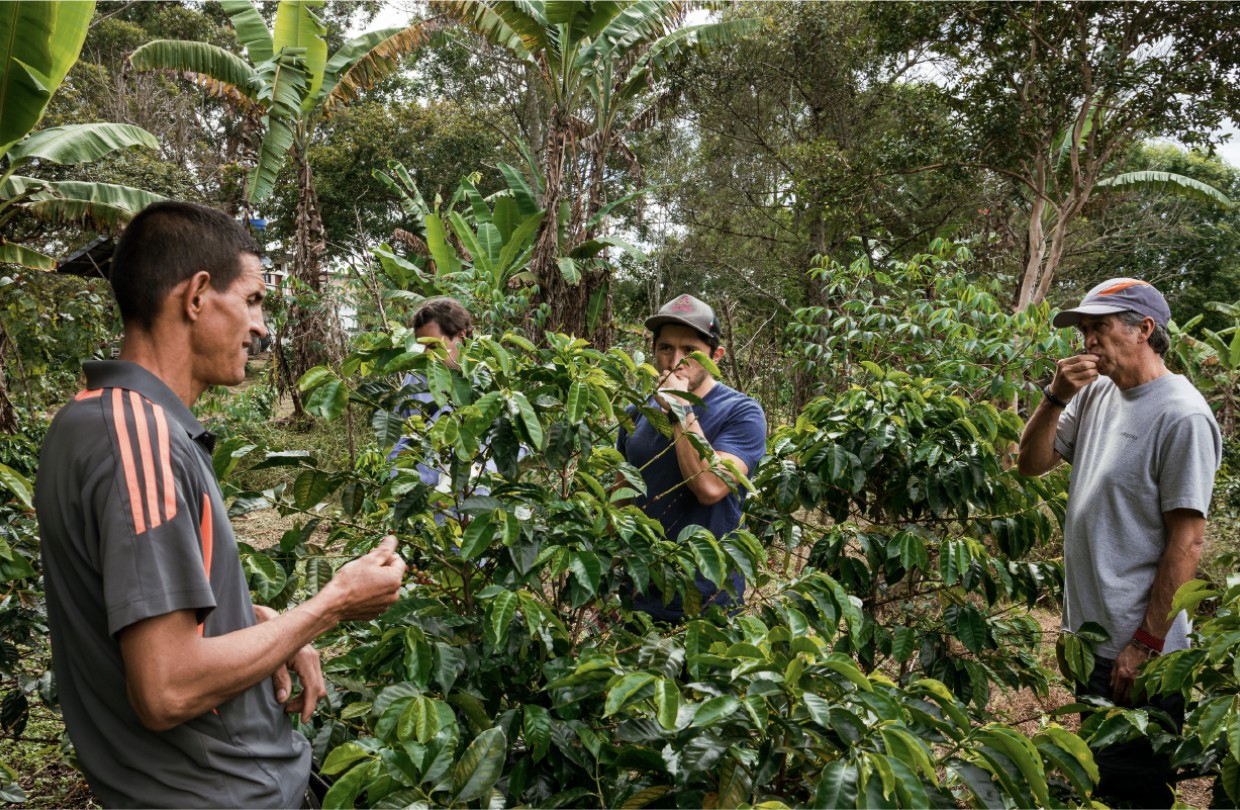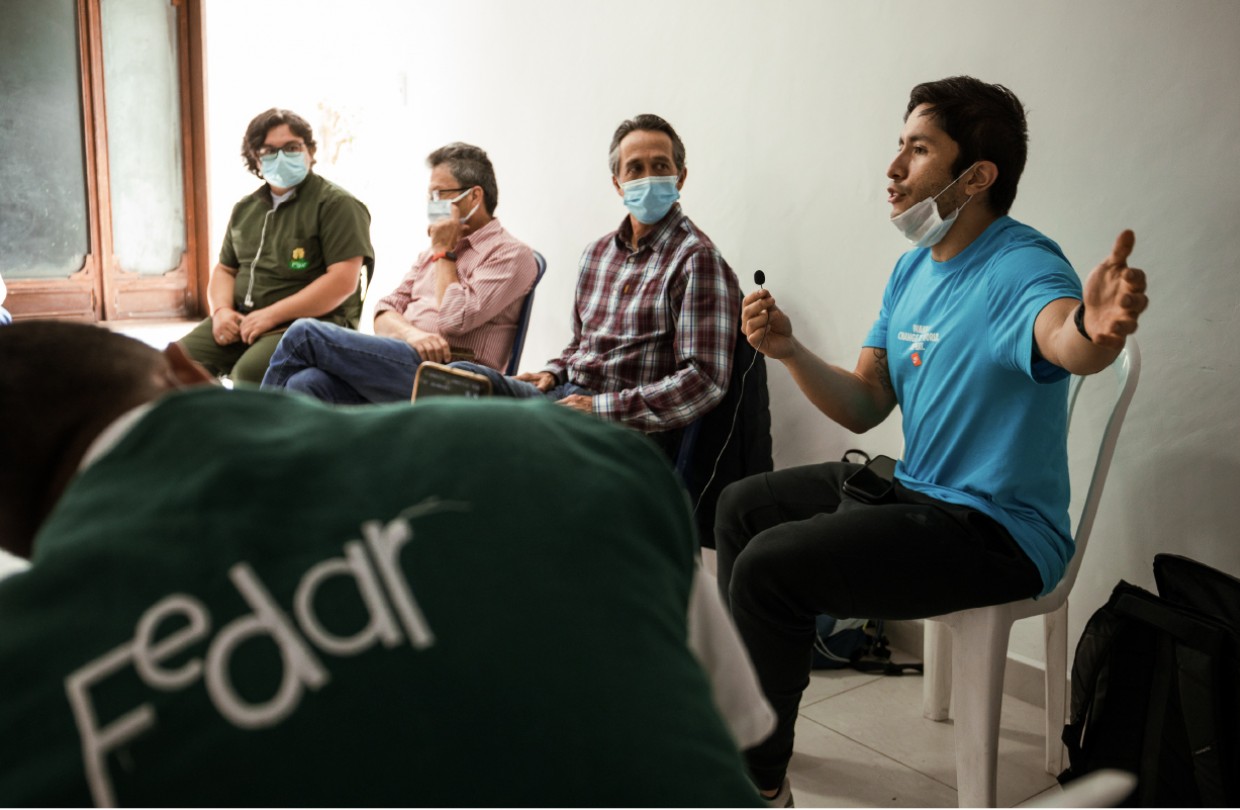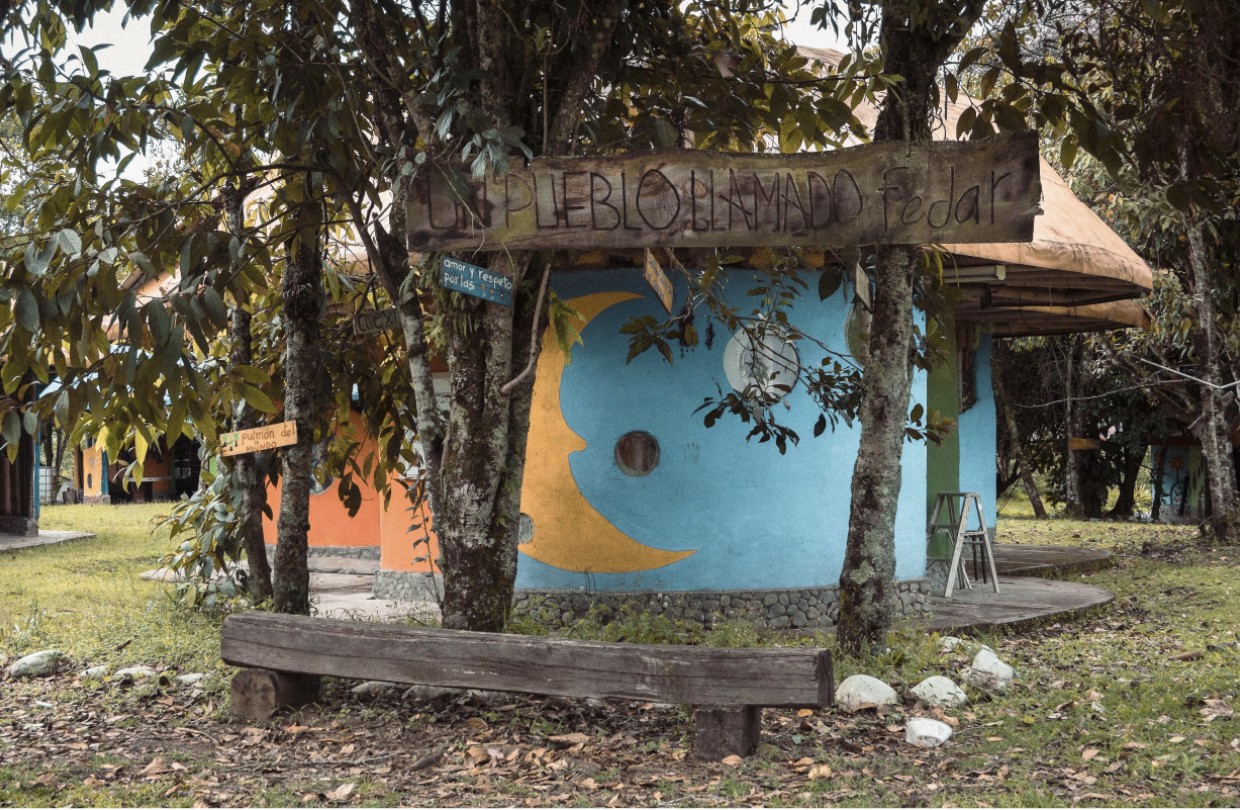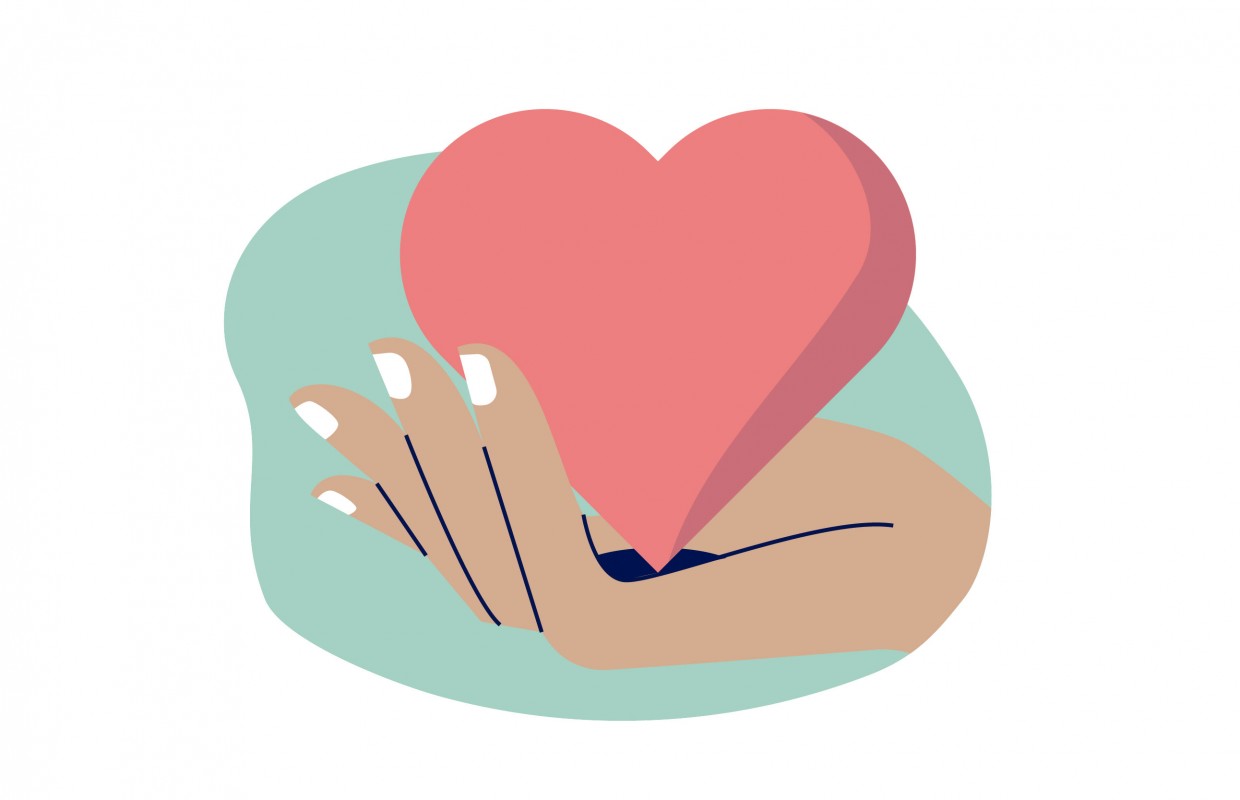An MMH Inside Report: A MMH fellow and his corporate volunteering journey.
MORE HEALTH – BY COLLABORATIVE IMPACT
The seed of Ricardo Cobo Dìaz's skills as a changemaker was planted within him in the earliest years of his childhood: he shared his upbringing and a profound friendship with his brother Oscar, who was born with Down’s syndrome. Ricardo empathized with Oscar and understood the challenges he faced in becoming an active part of society and a contributor to his community, and as a result became very aware of the problems and barriers faced by children with disabilities. But at the same time, Ricardo also saw the loss suffered by society when inclusion fails.
Ricardo was keen to help his brother and the many other people with disabilities in his native country of Colombia, which is home to approximately three million people with disabilities in Colombia in one capacity or another, 40 percent of which have a mental disability. It is primarily the young people among them that Ricardo wanted to help integrate into society. Thanks to his personal experiences, Ricardo soon realized that the most significant barrier faced by people in their struggle to become an integral part of society is access to education and employment. With state-led programs being virtually non-existent, children with disabilities are generally excluded, and access to social and economic activities remains out of reach.

As a true changemaker, Ricardo did not wait to tackle the problem; he went about finding solutions immediately. In 1985, Ricardo launched the Foundation Institute for Stimulating Development and the Arts (FEDAR). Through it, he organizes an innovative special education program for children with disabilities. FEDAR puts on seminars during which future teachers, paramedics, doctors, parents, psychologists, artists, and special education instructors learn how to adapt their approach to the needs of people with disabilities and how to set up other centers so that the initiative can grow and benefit more and more people. The breadth of FEDAR's activities is enormous.
Today, FEDAR is more than just a network that brings together more than 70 organizations in Colombia and many other Latin American countries to work directly with more than 10,000 young people with disabilities. It also actively has an impact on special education reforms in public schools. Ricardo's work is changing the game by creating opportunities for people with disabilities and influencing critical aspects of national educational and welfare systems.
ADDRESSING OUR PARTNER’S NEEDS – NOT OURS
It was early in 2020 when Ricardo was approached by Making More Health. Focusing primarily on enhancing innovation for better health worldwide, the local MMH team part of Boehringer Ingelheim in South America) had already been exploring co-creation pathways involving innovative social projects launched by social entrepreneurs and intrapreneurs.
Against this backdrop, the team approached FEDAR with an idea: why not collaborate and address health-related issues in the region by means of strong local employee involvement from corporate volunteers at Boehringer Ingelheim? Their specific goal: To enhance the health and well-being of people and animals in the rural municipalities of Popayán and La Hormiga, located in the south of the country, through education and digitalization, and to empower local communities through practical support. Both parties quickly grasped the potential offered by the idea, and the project soon came to life. Under the auspices of General Manager Jorge Martin del Río Soto and the leadership of five Colombian Boehringer Ingelheim colleagues, FEDAR and the MMH team managed to engage around 50 employees from Boehringer Ingelheim Colombia as corporate volunteers. Their time and expertise were put into four projects, which were planned and executed together with the FEDAR team.

“The first step in work with an entrepreneur is to build trust between everyone involved, with the ultimate goal of finding solutions to address our partners’ needs – not ours.”
Edison Núñez, Project Coordinator (Boehringer Ingelheim)
The Filled with Love initiative coaches pregnant women in rural communities on topics such as good nutrition for both themselves and their babies and prenatal well-being. With the cooperation having been launched in May 2020, communication has been primarily virtual until now.
As Ana María Pérez, one of the four leaders behind the initiative, states: “Sometimes it’s very challenging, but if you stay flexible in your approach, things usually work out.”
The FEDAR Coffee initiative is a business model for producing and selling sustainable coffee. It works with young people with disabilities who are supported by the NGO. The Boehringer Ingelheim team assists FEDAR with a number of systemic growth levers. e.g. the coffee branding and the commercialization strategy, thus enabling the project to become more prominent and sustainable, and achieve a more significant impact within the community.
FEDAR’s sustainable agricultural initiative – called FEDAR Farm – educates farmers about pet and livestock maintenance and food security issues, with the aim of making their businesses even more sustainable and prosperous.
Finally, the fourth cooperation – FEDAR Social – aims to raise awareness for the projects mentioned above via digital and social media platforms by establishing communication channels over which to relay the FEDAR mission throughout the world and enhance the marketing efforts and online content produced by this community.

“One of our key lessons learned is that it is imperative to listen to the partnering NGO and the community, and to be open to change course if necessary," says Edison Núñez. “The feedback from both FEDAR and our colleagues has been very positive, and we are really looking forward to continuing to advance these projects.”
The co-creation project between FEDAR and MMH could become a blueprint for similar projects in this region in the future as it powerfully demonstrates the collective impact that MMH Global, the local MMH teams, Boehringer Ingelheim, Ashoka, and other relevant partners can create. Strong support from the MMH global team and clear, measurable, and feasible objectives allow the teams to embark on a journey that has the potential to change lives and show how people can use the power of awareness, collaboration and innovation to improve health in communities all over the world.


